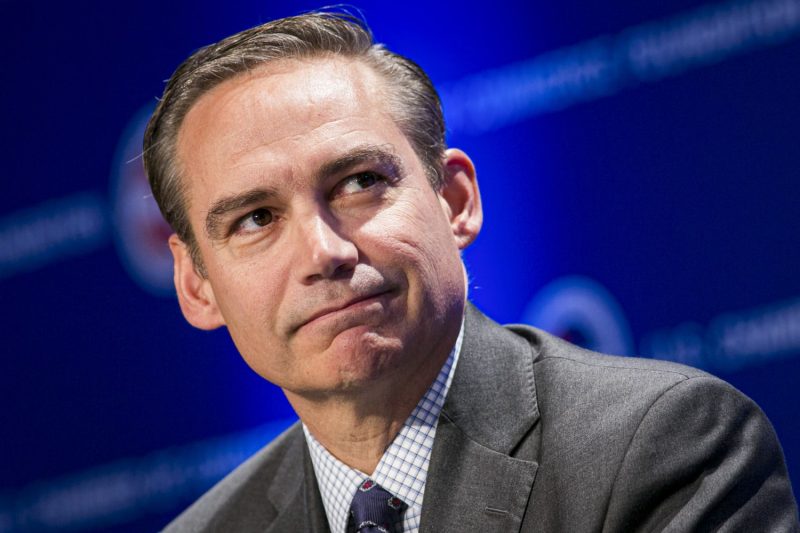Ever since its inception in 1916, Boeing has been a pioneering force in the aerospace industry. Under various leaderships, the company has transformed the prospects of global air travel and space exploration a great deal. Making a new leap in its leadership trajectory, the firm has recently announced Kelly Ortberg, an aerospace veteran, as its new chief executive officer (CEO), replacing Dave Calhoun.
Kelly Ortberg comes into the position carrying a remarkable resume of aerospace excellence. Ortberg served as CEO and president of Collins Aerospace, a subsidiary of United Technologies Corporation (UTC), from 2012 until its merger with Raytheon Technologies in 2020. He graduated from the University of Iowa with a Bachelor’s degree in Electrical Engineering and is highly revered for his business acumen and strategic vision in leading behemoth corporations.
Ortberg takes the helm from Dave Calhoun, who has been with Boeing since 2020. During his tenure, Calhoun navigated the company through several crises, including repairing the company’s reputation after two crashes involving its best-selling 737 MAX planes. However, under his guidance, Boeing regained approval for the jet to fly again after a lengthy grounding, reinstating a degree of stability and optimism for the future prospects of the company.
The transition in leadership is a testament to Boeing’s commitment to build on its rich heritage while keeping a firm focus on the future. As Ortberg takes the charge, he will be tasked with steering the aerospace giant through a dynamic and challenging global market environment, working towards delivering on future growth and stability mandates while reinforcing Boeing’s commitment to its customers and shareholders.
Ortberg’s leadership style focuses on complex problem solving, aggressive strategy implementation, and passionate decision-making. His stint at Collins Aerospace was characterized by his vision to drive durable growth and deliver on the goals committed to shareholders. With these leadership attributes, Ortberg will be expected to guide the company through the next phase of its evolution in an increasingly competitive and volatile aerospace industry.
As Ortberg leads Boeing into its next chapter, a key priority will be to navigate the complexities of the post-COVID world, where the importance of sustainability and digital transformation in the aerospace industry has been underscored. His background and proven track record in managing growth during challenging times, along with his commitment to technological advancements and sustainability, will be fundamental in crafting Boeing’s blueprint for the future.
One of the major items on Ortberg’s agenda would be the integration of advanced technologies into the aerospace sector, a domain the veteran is quite familiar with. Combining the incumbency of Boeing with consciously evolving aerospace technology, Ortberg stands on the brink of turning around aggressive foreign competition and domestic regulatory scrutiny.
A substantial challenge for Ortberg would be to reinvent the Boeing brand, reiterating its position as a global leader in commercial aviation, defense, and space systems. Aimed at cementing Boeing’s foundation for continued growth, innovation, and market leadership, Ortberg’s strategic and operational acumen will be crucial in revitalizing Boeing’s reputation both domestically and on the global stage.
In summary, Kelly Ortberg’s appointment comes at a time when Boeing is poised for a new era of innovative leaps in the aerospace sector. His predecessor, Dave Calhoun, has successfully maneuvered through a significant crisis and now the baton passes to Ortberg, who stands on the threshold of an exciting chapter for Boeing, charged with propelling the company’s growth and innovation saga in the face of modern changes and challenges.




